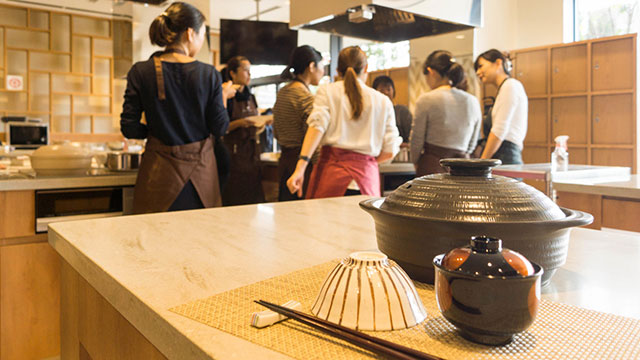
Coming to Japan is a learning experience in itself, but you can also go back home with a new skill set.
-
Learning any of the traditional Japanese crafts or techniques is a never-ending, lifelong experience, and a passion for its followers. In many ways it’s impossible to ever achieve the “perfect” tea ceremony or flower design, but to seek constant improvement with the guidance of an experienced teacher. While you’re here, it’s possible to dip your toes in some tradition, though this is by no means an exhaustive list of your options.
![]()
-
02
Kimono
Wearing kimono isn’t just about playing dress-up, but a technique and style of how to combine the different elements of the outfit to suit the person and the particular situation they will be in. Walking around Kyoto and Asakusa you will see many tourists (both foreign and domestic) dressed in kimono or yukata, but learning how to dress both yourself and others properly takes some skill. Even among the Japanese there aren’t many these days who know what they’re doing.
![]()
You’ll find many tourist-centered shops that are much more about dress-up, but that’s probably a good place for you to start if it’s your first time so you can learn the basics. If you want to get a bit deeper into the culture there are workshops you can take as a visitor in places like Inspire Space in Hiroo that include more background and technique.
-
03
Tea Ceremony
It may seem simple from the outside, but to do a proper tea ceremony requires years of practice and all of the equipment and accoutrement to give a presentation that engages your guests. Everything from the direction you rotate the cup to the angle of your elbow are points of attention and improvement. In the end it’s much less about the tea itself, and rather the way that the tea is prepared and served, which makes tea ceremony both a skill and a meditative exercise.
![]()
You can learn the basics at a tea ceremony workshop, and then dive in a bit deeper if it really connects with you. There’s a well-known ceremony space in Kyoto called Ju-an, and others can be found in your local area with some searching or asking a Tourist Information Center. Our personal preference is having ceremonies in Japanese, but prefaced and followed with English explanation to maintain authenticity.
-
04
Cooking
Mastering even some of the basics of Japanese cooking will aid you greatly once you return home, as being able to properly make sushi rice or even simple miso soup will enhance your own enjoyment and stay with you for life.
Many cooking teachers are simply offering lessons directly out of their own kitchens, which means you can also get a taste of how locals live in everyday life. Yuka Mazda offers right out of her own kitchen in Hiroo, and she’s a published author about cooking as well!![]()
If you’re in Tokyo the TSUKIJI COOKING has lessons for visitors and sources their ingredients freshly from the Tsukiji market nearby. Japan’s largest cooking school chain ABC Cooking Studio now offers Japanese cooking classes in English, which are a pretty good bargain considering how expensive ABC is for domestic members.





 Go here
Go here





